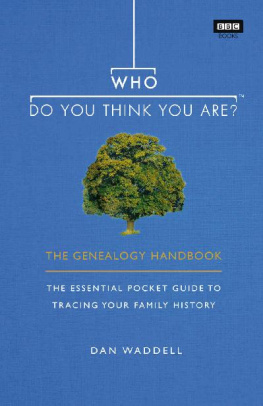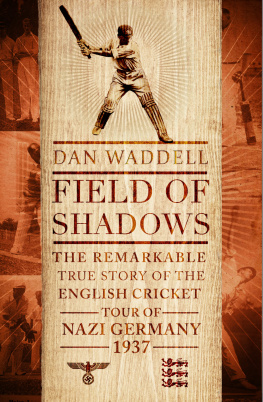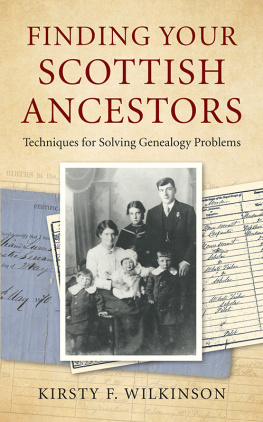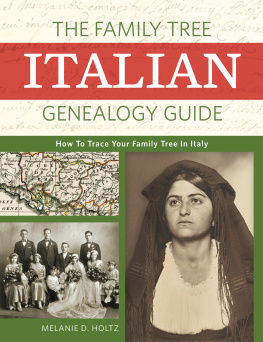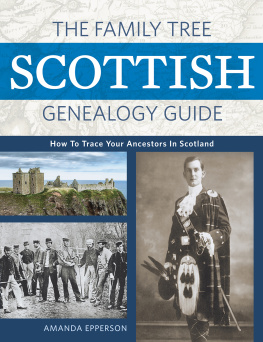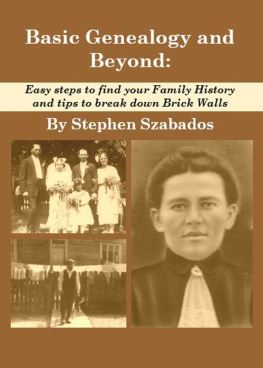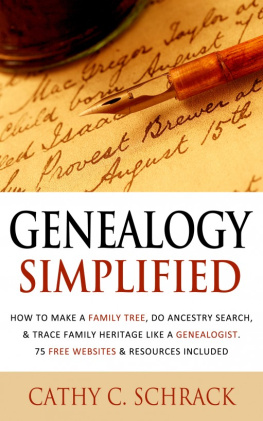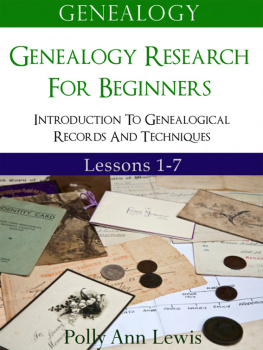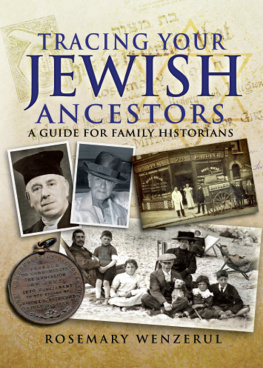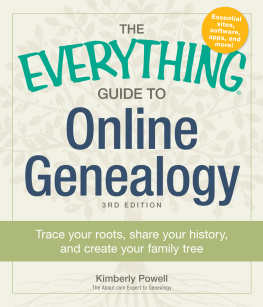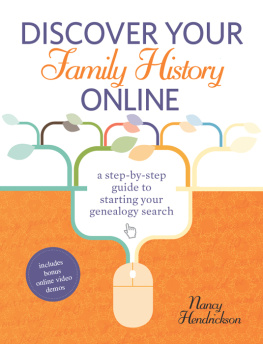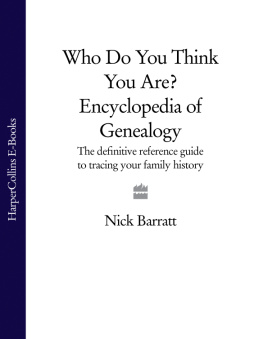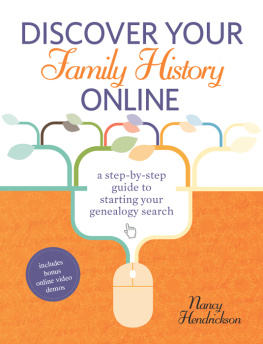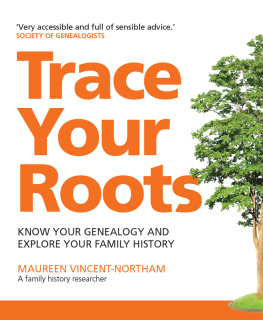Contents
About the Book
What secrets does your family history hold? A squandered fortune? A war hero? A hushed-up scandal?
This official Who Do You Think You Are? jargon-free guide equips you with the tools you need to start your own journey into your familys past, and get relevant results fast. There is information on everything from how to order birth certificates and track down immigration records, to drilling down on specifics such as finding out if your army officer great-great grandfather was ever awarded a military medal.
Also featuring inspirational celebrity stories from ten years of the groundbreaking BBC show, The Genealogy Handbook will lead you on an unforgettable quest to discover who you really are.
About the Author
Dan Waddell is a journalist and author who lives in London. He has written more than twenty works of fiction and non-fiction, including the bestselling guide which accompanied the first series of Who Do You Think You Are? He has also written an award-winning series of crime novels featuring genealogist Nigel Barnes.

INTRODUCTION
IN 1988, TELEVISION producer Alex Graham settled down one Sunday morning to read the newspapers. He came across an interview with fellow Scot Billy Connolly in which the comedian spoke honestly and movingly of his family history. It occurred to Alex that while Billy was an international star, his familys story of working-class hardship and struggle was shared by millions of other Britons. He had the idea of a series of programmes where well-known people told their family history.
* * *
He pitched the idea to the BBC but they turned it down. For 15 years it languished in the bottom drawer of his desk at Wall to Wall, an independent production company, until Jane Root of BBC TWO visited the company looking for ideas. The channel was still basking in the glow of successful programmes like Great Britons and Restoration, which had proved that TV shows about history could attract healthy viewing figures. Alex and his team decided to re-pitch their celebrity genealogy idea, now tentatively titled Back to My Roots. This time the BBC were interested and the series, to Alexs delight, was commissioned.
But then the hard work really started. For a few weeks the team thought they had bitten off more than they could chew. Persuading ten celebrities to appear on a show which would dig into their past possibly revealing unknown secrets without finding out a single detail until the cameras started to roll, proved to be an enormous challenge. Undaunted, they drew up a list of around 200 celebrities, researched their ancestry and targeted the best stories. Many refused, but Alex and his team persisted.
The first celebrity to agree was Bill Oddie. His involvement not only gave the series (its title by now changed to Who Do You Think You Are?) its first subject, but also changed the format. Until that point the intention of Alex and his team had been to use the celebrities to illustrate ten major stories and events from British history, such as the Industrial Revolution, the First World War and the Irish Potato Famine. But Bill told them he was less interested in his familys role in the rise and fall of the cotton industry during the Industrial Revolution than he was in the story of his mother, whom hed never really known. Throughout his childhood she had been in and out of hospital, and no one had told him what was wrong with her. It was that story which fascinated and motivated him.
It presented Wall to Wall with a dilemma. Should they defy Bill and risk him pulling out by telling him they were only interested in his familys role in the Industrial Revolution? Or should they go along with his request to investigate his mothers illness? Wisely, they chose the latter, and the template for future episodes was set. The series would try and tell an alternative British history by highlighting major themes in our islands story, but it would also follow the subjects on an emotional journey into their past. It is this combined appeal, of bringing history to life and following someone on a personal quest, which has created the shows enduring popularity.
The first episode aired on 12 October 2004 to record viewing figures for BBC TWO. Now, ten years after that first episode, Who Do You Think You Are? has marked its 11th series and its 100th episode. There have been books, DVDS, live events and the format has been sold to more than 20 different territories. In that decade it has covered a vast range of themes: tales of immigration and emigration, struggle, tragedy and hope, lives lived in illness, crime and poverty, and war stories. There have been tears of joy, anger and sadness. Without exception, each celebrity has found something new and surprising on their journey, a revelation that has given them greater understanding of their predecessors and, in some cases, their own lives.
The scale of the shows success still surprises Alex. The most gratifying thing is the love people have for the show and the intensity of that love. Ive been fortunate to have been involved with three or four programmes that have crossed over and connected with people, and Who Do You Think You Are? is probably most prominent among them.
More of us than ever are going back to our roots. There are many reasons for this, of which the success of Who Do You Think You Are? is one. Another major factor is the increasing amount of information available online. Meanwhile, growing numbers of us have discovered that tracing our family history is not just a trawl through endless archives, but an addictive and emotional journey into our pasts. Often we dont know where our research will take us or what we might find. An unclaimed legacy or a secret royal link are unlikely, but theres a good chance theres a war hero or a black sheep waiting to be discovered. This process of revelation is what makes it so addictive. For many of us it will be the closest we come to detective work interviewing people, following clues, solving puzzles, overcoming dead ends, until we get to the truth.
This guide will equip you with the basic skills to make that journey. It will give you some tips about putting flesh on those bare bones, so you are not just able to find basic information about your ancestors but the circumstances in which they lived and the lives they led.
Happy hunting.
GETTING STARTED
The most difficult step in family history is the initial one. The flow of accessible information from archives to Internet has become a torrent and there are a bewildering number of websites offering all kinds of information. So much so that people often wonder where to start or how to navigate through the mass of available material. But the old adage remains true: in order to trace the dead, the best place to start is the living.
* * *
The simple fact is that if youre lucky enough to have surviving relatives from a previous generation, whether thats parents or grandparents, then you have the perfect starting point (if you dont, never fear; the next section has a short guide on how to get started by putting yourself first). Not only will a chat with them yield precious nuggets of information to kick-start your quest, its also an ideal way to preserve an oral history of your family. In an increasingly fractured world, where instant communication is king, and our eyes are fixed firmly on the future, we are losing precious chances to record the past and the memories of those who lived through it. Its a great idea, with their agreement, to record interviews with any relatives. Not only does it free you to listen carefully to what theyre saying rather than having to scribble down notes, but those tapes or files can be used by your descendants when their time comes to research their pasts. If your relatives live a long distance away and you are not meeting them face-to-face, make sure you type or write up the notes of phone conversations as quickly as possible afterwards while your memory is still fresh, or print out an email chain if youve done the interview electronically. There are also ways of recording conversations over the Internet too, using programmes such as Skype. Its well worth the effort. The same goes for keeping any photographs, diaries, letters and other mementos you might collect. Your children or nieces and nephews might not seem too interested now, but there will come a time when they will want to know more about their family and their place in history.
Next page
